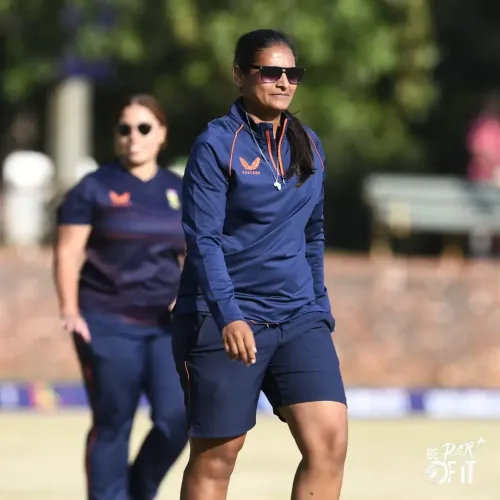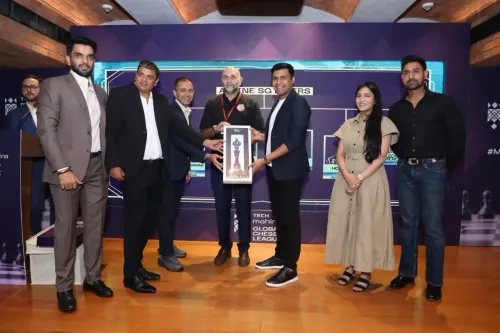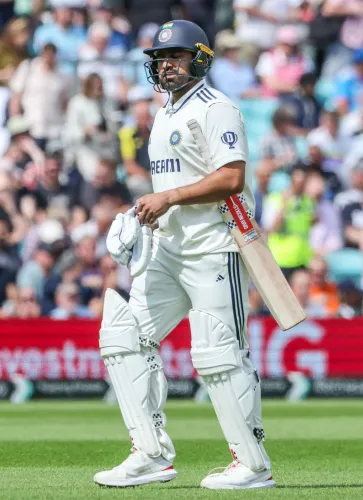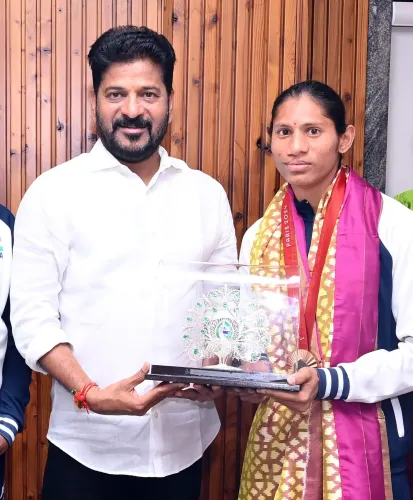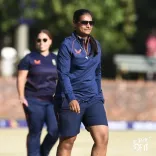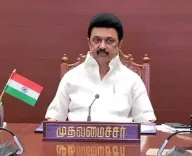Is India Really Superior to Pakistan in Cricket and Strategy?
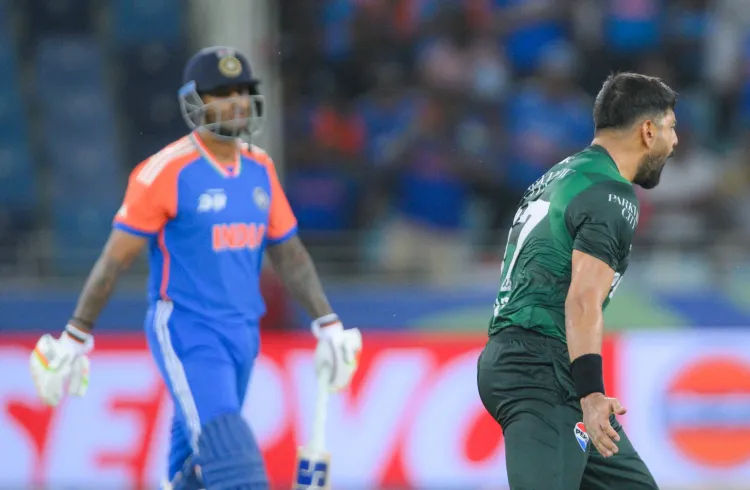
Synopsis
Key Takeaways
- India's cricketing dominance over Pakistan is evident in recent matches.
- Fielding issues need immediate attention, especially with dew affecting gameplay.
- Young players are stepping up in the absence of senior stars.
- Practice under challenging conditions is crucial for improvement.
- Returning to a standard batting order is essential for the final.
New Delhi, Sep 27 (NationPress) As the cricketing community gears up for an electrifying Asia Cup final featuring India and Pakistan, former Indian leg-spinner Amit Mishra has expressed confidence in the Suryakumar Yadav-led squad to secure a commanding victory in Dubai this Sunday night.
Mishra emphasized that India, the reigning T20 World Cup champions and the only undefeated team in the Asia Cup, stands significantly ahead of their traditional rivals, Pakistan, both on the field and in terms of strategy. This will be the third encounter between the two teams in the tournament, with India previously defeating Pakistan by seven wickets in their Group A match and by six wickets in the Super Fours.
“India is destined to win. India is far superior to Pakistan in cricket and in mindset. Their level of thinking cannot even compare to ours. I don’t want to dwell on their rhetoric or the nonsense they’ve been spouting, but what have they achieved in cricket? What’s their ranking? Can they match our bowling or batting?”
“Certainly, we must enhance our fielding. Missing catches in matches can be detrimental, especially in T20s where anything can happen. With dew becoming a factor, it adds to the challenge. When you look at it, there’s no real comparison between us and them.”
“Currently, we lack senior players. Most of our young talents are stepping up, except for Suryakumar Yadav and Sanju Samson, who aren’t getting enough opportunities to bat along with Hardik Pandya. We’re winning thanks to our young brigade, despite the absence of stars like Virat Kohli and Rohit Sharma. In terms of mindset and cricketing prowess, we are far ahead, and I don’t see them being close to us,” Mishra stated in an exclusive interview with IANS.
However, Mishra did point out India’s vulnerability in the tournament so far—fielding. With dew affecting play, India has dropped several chances, leading to a noticeable decline in fielding standards. He urged the team to adapt swiftly and focus on catching with a wet ball in practice sessions before the final.
“When dew sets in, the ball tends to feel heavier. Therefore, it’s essential to practice catching with a wet ball and in varying conditions to address these challenges. It’s crucial, and that’s the responsibility of the fielding coach.”
“I won’t use that as an excuse because as professional cricketers representing India, a missed catch or two can happen, but if it becomes frequent, improvement is necessary. Practicing under lights and with wet balls should be prioritized to enhance performance, which hasn’t reflected in our last two matches.”
“However, I consider this the only major concern—missing catches that could alter the game, especially in T20s where momentum shifts in just a few balls. If we miss a catch of a key player, they could score 50-60 runs, so the Indian team must focus on this,” he elaborated.
On India’s recent adjustments to the batting order before reverting to their established lineup in the nail-biting Super Fours victory over Sri Lanka via a Super Over, Mishra acknowledged the importance of giving players time at the crease but insisted that the final should see a return to the regular order.
“From my perspective, it was a beneficial move because sometimes your openers are scoring runs, and the match concludes with two wickets down. In this tournament, like in the last match, batters who previously had limited opportunities were sent in to bat, allowing them to gain some match practice. Match time is crucial, and that’s one reason.”
“However, I believe the final will showcase India’s conventional batting order. It was a positive experience to allow all players to bat and gain match practice, but for the final, the main batting order will be deployed, and I think the left-right combination should be considered, which the Indian team and coaching staff must ensure.”

